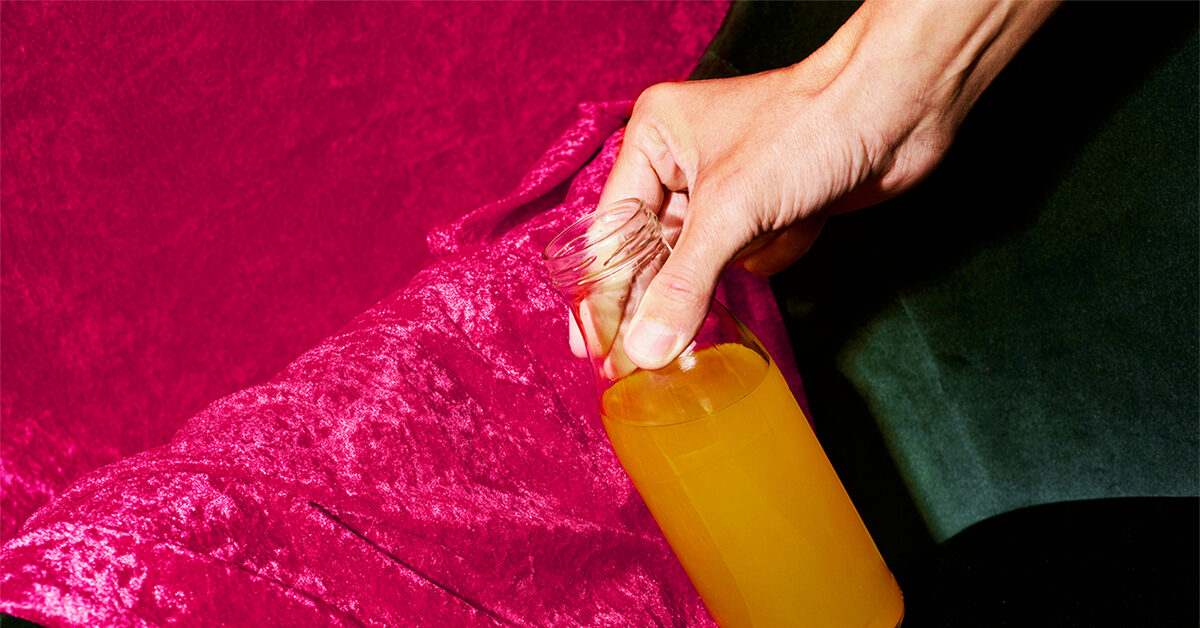Atopic dermatitis (aka eczema) is annoying AF. If your skin is Gotham City, then eczema would be The Joker. But are probiotics the hero your skin deserves? Spoiler: The jury’s still out. Here’s what the science says on probiotics to treat eczema.
Eczema is an inflammatory skin condition caused by a disturbed skin barrier and immune dysfunction. Common symptoms include:
So how do probiotics factor into all of this? Well, the idea is that probiotics can help ease eczema symptoms because they’re known to support a healthy immune system. Some studies have also found that probiotics can reduce inflammation and might help heal wounds. But we need more research to prove this is legit.
Researchers are still trying to determine the link between probiotics and eczema.
A 2018 review of 39 randomized control trials found that currently available probiotic strains prob make little or no difference in improving eczema symptoms. But wait! A 2014 review of 25 studies found that probiotic supplements reduced eczema severity in both kids and adults. As a result, researchers said probiotics *could* be an eczema treatment option.
BTW, probiotics might reduce the risk of eczema if taken as a baby or in utero. According to a 2020 review, probiotic supplementation during pregnancy and infancy may help restore gut microbiota imbalances which have been linked to eczema.
A 2021 review of 21 studies also showed some promising results. Researchers concluded that taking probiotics while pregnant could reduce the risk of a baby being born with eczema.
A 2021 study noted that the most commonly studied probiotics for atopic dermatitis are Lactobacilli and Bifidobacteria.
PSA: While we still don’t know if probiotics can curb eczema, there’s no evidence to suggest probiotics can make eczema any worse. That said, you should still talk with a dermatologist or registered dietician before picking a probiotic.
In addition to probiotic supplements, you can also add probiotic-rich foods to your daily diet. Some tasty options include:
FYI: Lactobacilli is typically found in yogurt and fermented foods. Bifidobacterium is often found in yogurt in other dairy products.
Probiotics have a lot of healthy street cred and with good reason! Here’s how probiotics can support your overall health.
Probiotics are generally super safe to take. That being said, there are some potential side effects to look out for. Most side effects — like gas, heartburn, or the trots — aren’t serious. But you should def talk with a healthcare provider before taking probiotics if you:
According to the National Center for Complementary and Integrative Health (NIH), those who have severe illnesses or compromised immune systems are more likely to experience side effects like:
There’s not enough research to show that probiotics can treat eczema. But some studies show promising results. And since probiotics are generally considered safe, they might be worth a shot.
You can add a probiotic supplement or probiotic-rich foods to your daily diet. Just be sure you talk with a healthcare professional first if you’re pregnant or breastfeeding, or if you have a chronic illness, bowel or digestive condition, or a compromised immune system.
Last medically reviewed on March 28, 2022
13 sourcescollapsed
OUR BRANDS
